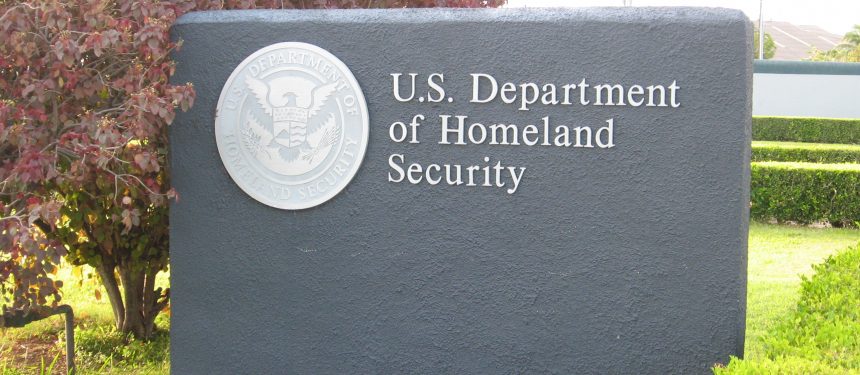International students could soon be paying more for their US study visas after the Department of Homeland Security revealed a new proposal to adjust fees charged by the Student and Exchange Visitor Program.
News and business analysis for Professionals in International Education
Have some pie!
Homeland Security proposes international student visa fee hike
 Photo: flickr/nsub1
Photo: flickr/nsub1 Currently, international students are issued Form I-20 ‘Certificate of Eligibility for Nonimmigrant Student Status’ and pay the mandatory SEVP fee, which SEVP uses to train personnel and maintain and develop Student and Exchange Visitor Information System technology, among other things.
“Those of us charged with recruiting international students to the US must remain focused”
Citing rising operational costs, DHS is proposing an increase in the cost of F and M student visas from USD$200 to $350, while fees for the majority of J exchange visas will also increase; up from $180 to $220.
Meanwhile, the fee for institutions seeking initial certification to enrol international students will increase from $1,700 to $3,000.
DHS also is proposing to establish two new fees: a $1,250 fee for institutions seeking to renew their SEVP certification to enrol international students and a $675 fee to appeal the denial or withdrawal of an institution’s certification.
Justifying the proposal, a statement on the DHS website explained that although the program’s fees have not changed since 2008, “operating costs have increased because of inflation, expanded program operations and SEVIS enhancements”.
It said if the program continues to operate at current fee levels, “SEVP anticipates it will experience an average annual shortfall of $68.9 million beginning in 2019”.
“The proposed fees help eliminate this risk and allow SEVP to continue to achieve its priorities—enhancing national security and preventing immigration fraud,” the statement continued.
SEVP went on to explain that adjusting fees would ensure levels are sufficient to recover the full cost of activities of the program and would “establish a fairer balance of the recovery of SEVP operational costs between beneficiary classes”.
However, through the fee increase the program would potentially bring in an additional $75.2 million, according to some reports.
But the proposed hike in fees is seen by some members of the international education community as yet another set back to the recruitment of international students into the US.
The public can formally comment on the SEVP rule until September 17
According to data compiled by SEVP in March 2018, international students on F and M visas were shown to have decreased by 0.5% overall when compared to the previous year.
And in June, key figures in the international education community condemned the US Supreme Court’s decision to uphold the implementation of the Trump administration’s travel ban, saying it would “undoubtedly” continue the downturn in enrolment.
Rahul Choudaha, executive vice president of Global Engagement and Research at Studyportals told The PIE News the welcoming attitudes of US universities and colleges is rubbing against the unwelcoming immigration and visa policies.
“Increasing visa fees is counter-productive in times when competition for attracting international students is intense. It will hurt the competitiveness of the US as a preferred destination of choice.
“In addition to the financial burden, it puts additional psychological and perceptual barriers of the US becoming unwelcoming for international students,” he added.
Director of International Admissions at Temple University in Philidelphia Jessica Sandberg said those who are working in international education need to band together to overcome the negative messages being sent to international students through such developments.
“Increasing visa fees is counter-productive in times when competition for attracting international students is intense”
“Those of us charged with recruiting international students to the US must remain focused in our efforts to overcome any negative fallout from additional barriers placed upon the student visa program, including an increase in fees,” she told The PIE.
“Temple University, along with a growing number of institutions, is meeting this challenge by accelerating the #YouAreWelcomeHere campaign with a scholarship program that strengthens our message of welcome to international students.”
The public can formally comment on the SEVP rule until September 17, 2018, when the rule undergoes regulatory review before being adopted or rejected.
Still looking? Find by category:



Please visit EnglishUSA’s Take Action page at https://www.englishusa.org/general/custom.asp?page=TakeAction to learn how to comment on the proposal and contact your Member of Congress.
I would suggest that U.S. colleges and universities offer to absorb 100% of visa fees paid by their international students—upon arrival. Considering the tuition fees paid by international students, this would be a drop in the bucket.
Outstanding thinking Perry, u deserve to be financial minister post. Hats off
All these are strategies to continue to exploit international students. sadly, after paying all these charges /monies and visa interview fee the embassy will still deny you visa and all your money gone. Exploitative tendency